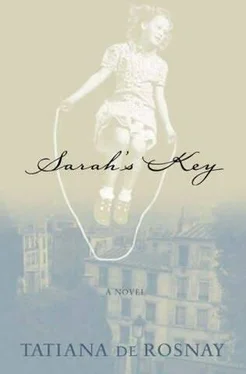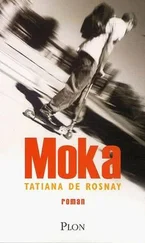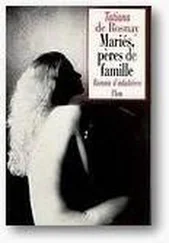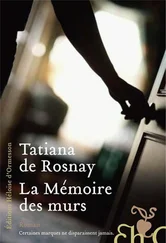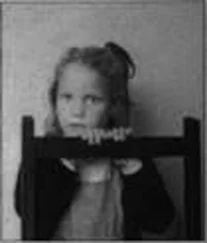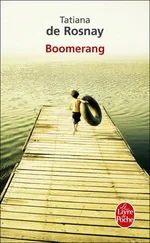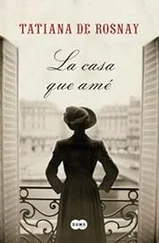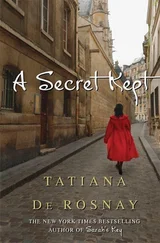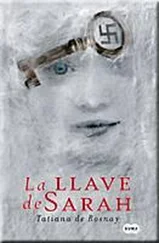Earlier on that day, before the doctor’s appointment, I had talked to Isabelle. She had been particularly supportive, as usual. The choice was mine, she had pointed out, no matter how many shrinks or friends I could talk to, no matter whose side I was looking at, whose opinion I was examining. It was my choice, bottom line, and that was precisely what made it all the more painful.
There was one thing I did know: Zoë had to be kept out of this, at all costs. She would be on vacation in a couple of days, ready to spend part of the summer with Charla’s children, Cooper and Alex, on Long Island, then with my parents, in Nahant. In a way, I was relieved. This meant the abortion would take place while she was away. If abortion was what I had finally agreed to.
When I got home, there was a large beige envelope on my desk. Zoë, on the phone with a friend, shouted from her room that the concierge had just brought it up.
No address, only my initials scrawled in blue ink. I opened it, pulled out a faded red file.
The name “Sarah” leaped out at me.
I knew instantly what the file was. Thank you, Edouard, I said to myself fervently, thank you, thank you, thank you.

INSIDE THE FILE WERE a dozen letters, dating from September 1942 to April 1952. Thin blue paper. Neat round handwriting. I read them carefully. They were all from a certain Jules Dufaure, who lived near Orléans. Each brief letter was about Sarah. Her progress. Her schooling. Her health. Polite, short sentences. “Sarah is doing well. She is learning Latin this year. She had chicken pox last spring.” “Sarah went to Brittany this summer with my grandsons and visited the Mont-Saint-Michel.”
I assumed Jules Dufaure was the elderly gentleman who had hidden Sarah after her escape from Beaune-la-Rolande, and who had taken her back to Paris, the day of the horrible discovery in the cupboard. But why was Jules Dufaure writing to André Tézac about Sarah? And in such detail? I couldn’t understand. Had André asked him to?
Then I found the explanation. A bank statement. Every month André Tézac had his bank send money to the Dufaures, for Sarah. A generous sum, I noticed. This had gone on for ten years.
For ten years, Edouard’s father had tried to help Sarah, in his own way. I could not help thinking of Edouard’s immense relief when he had discovered all this locked away in the safe. I imagined him reading these very letters, and making this discovery. Here was his father’s redemption at long last.
I noticed that the letters from Jules Dufaure were not sent to the rue de Saintonge, but to André’s old shop on the rue de Turenne. I wondered why. Probably because of Mamé, I supposed. André had not wanted her to know. And he had also not wanted Sarah to know that he was giving her this money on a regular basis. Jules Dufaure’s neat script read: “As you have requested, your donations have not been revealed to Sarah.”
At the back of the file, I came upon a wide manila envelope. I pulled out a couple of photographs. The familiar slanted eyes. The pale hair. How she had changed since that school portrait of June ’42. There was a palpable sadness about her. The joy had gone out of her face. She was no longer a child. A tall, slim young woman of eighteen or so. The same sad eyes, despite the smile. A couple of young men of her age were with her on a beach. I turned the photo over. Jules’s neat handwriting read: “1950, Trouville. Sarah, with Gaspard and Nicolas Dufaure.”
I thought of all she had gone through. The Vel’ d’Hiv’. Beaune-la-Rolande. Her parents. Her brother. Too much to bear for a child.
I was so wrapped up in Sarah Starzynski I didn’t feel Zoë’s hand brush my shoulder.
“Mom, who’s that girl?”
I hastily covered the photos with the envelope, muttering something about a tight deadline.
“Well, who is it?” she asked.
“Nobody you know, honey,” I said, hurriedly, pretending to tidy my desk.
She sighed, then said in a clipped, grown-up voice, “You’re weird at the moment, Mom. You think I don’t know, you think I don’t see. But I see everything.”
She turned and walked away. I felt guilt wash over me. I rose, caught her up in her bedroom.
“You’re right, Zoë, I’m weird at the moment. I’m sorry. You don’t deserve this.”
I sat down on her bed, unable to face her wise, calm eyes.
“Mom, why don’t you just talk to me? Just tell me what’s wrong.”
I felt a headache coming on. One of those powerful ones.
“You think I won’t understand, because I’m only eleven, right?”
I nodded.
She shrugged.
“You don’t trust me, do you?”
“Of course I trust you. But there are things I can’t tell you because they are too sad, too difficult. I don’t want you to be hurt by these things, the way they hurt me.”
She touched my cheek gently, her eyes glistening.
“I don’t want to be hurt. You’re right, don’t tell me. I won’t sleep if I know. But promise me you’ll be all right soon.”
I took her in my arms, held her tight. My beautiful, brave girl. My beautiful daughter. I was lucky to have her. So lucky. Despite the headache’s onslaught, my thoughts lurched back to the baby. Zoë’s sister or brother. She knew nothing. Nothing of what I was going through. Biting my lip, I fought back tears. After a while, she slowly pushed me away and looked up at me.
“Tell me who that girl is. That girl in the black-and-white photos. The ones you were trying to hide from me.”
“All right,” I said. “But it’s a secret, OK? Don’t tell anyone. Promise?”
She nodded.
“Promise. Cross my heart and all that.”
“Remember I told you I found out who lived in the rue de Saintonge apartment before Mamé moved in?”
She nodded again.
“You said a Polish family. A girl my age.”
“Her name is Sarah Starzynski. Those were photos of her.”
Zoë narrowed her eyes at me.
“But why is it a secret? I don’t get it.”
“It’s a family secret. Something sad happened. Your grandfather doesn’t want to talk about it. And your father doesn’t know anything about her.”
“Did something sad happen to Sarah?” she said carefully.
“Yes,” I replied quietly. “Something very sad.”
“Are you going to try and find her?” she asked, sobered by my tone.
“Yes.”
“Why?”
“I want to tell her that our family is not what she thinks. I want to explain what happened. I don’t think she knows what your great grandfather did to help her. For ten years.”
“How did he help her?”
“He sent her money, every month. But he asked that she not be told.”
Zoë was silent for a moment.
“How are you going to find her?”
I sighed.
“I don’t know, honey. I just hope I do. After 1952, there is no trace of her at all in this file. No more letters, no more photos. No address.”
Zoë sat on my knees, pressing her slim back against me. I took a whiff of her thick, shiny hair, the familiar sugary Zoë-like smell that always reminded me of when she was a toddler, and smoothed a couple of unruly strands down with my palm.
I thought of Sarah Starzynski, who had been Zoë’s age when horror came into her life.
I closed my eyes. But I could still see the moment when the policemen tore the children from the mothers at Beaune-la-Rolande. I could not get the image out of my mind.
I held Zoë close, so close she gasped.

ODD, THE WAY DATES go. Ironic, almost. Tuesday, July 16, 2002. The Vel’ d’Hiv’ commemoration. And precisely the date of the abortion. It was to take place in some clinic I had never been to, somewhere in the seventeenth arrondissement, near Mamé’s nursing home. I had asked for another date, feeling July 16 was overloaded with meaning, but it had not been possible.
Читать дальше
